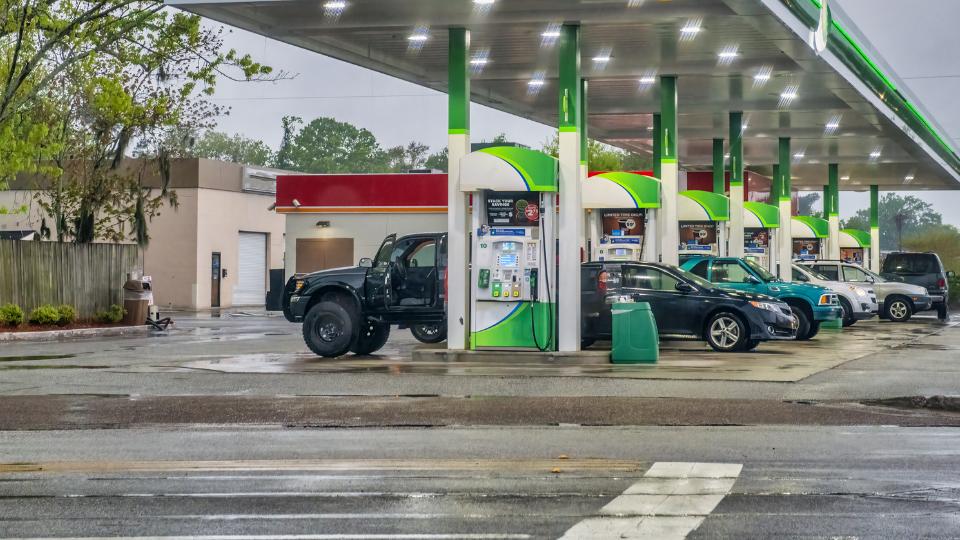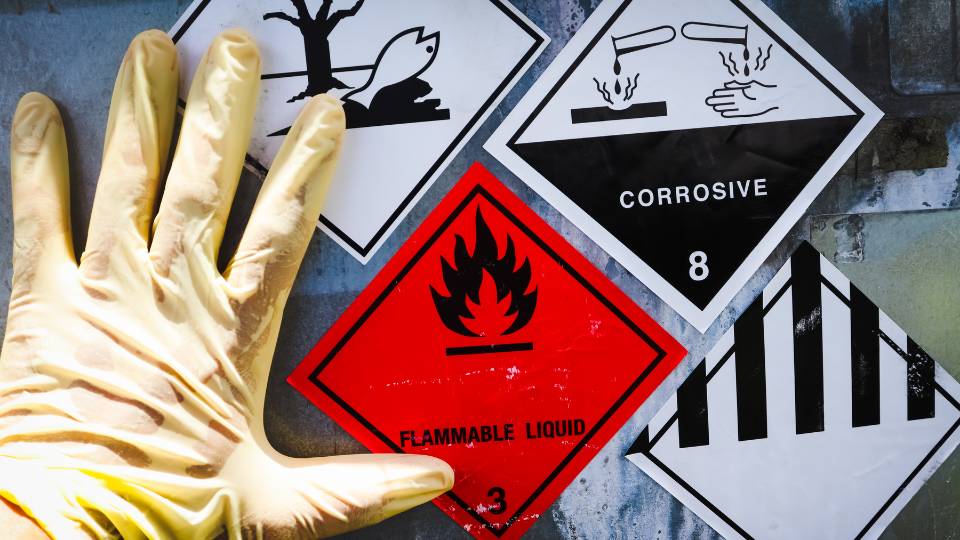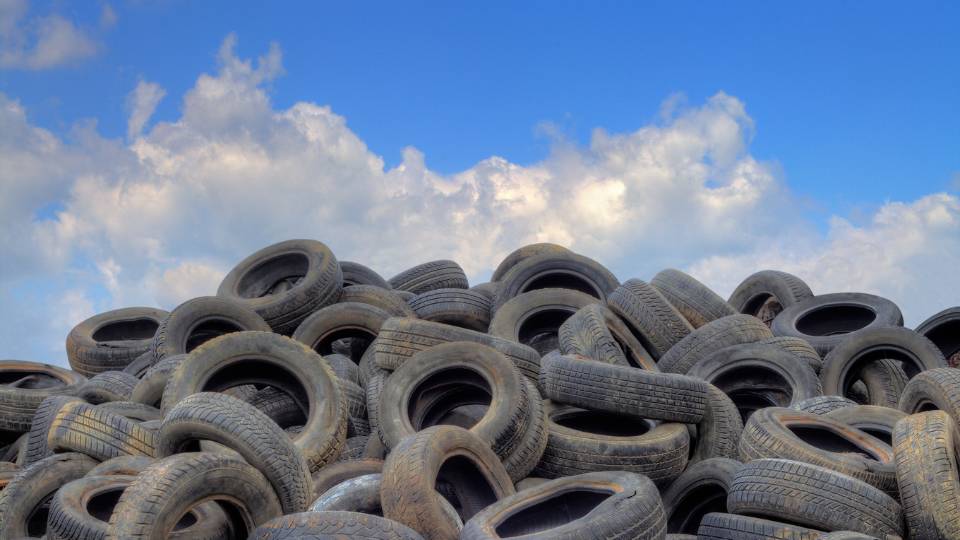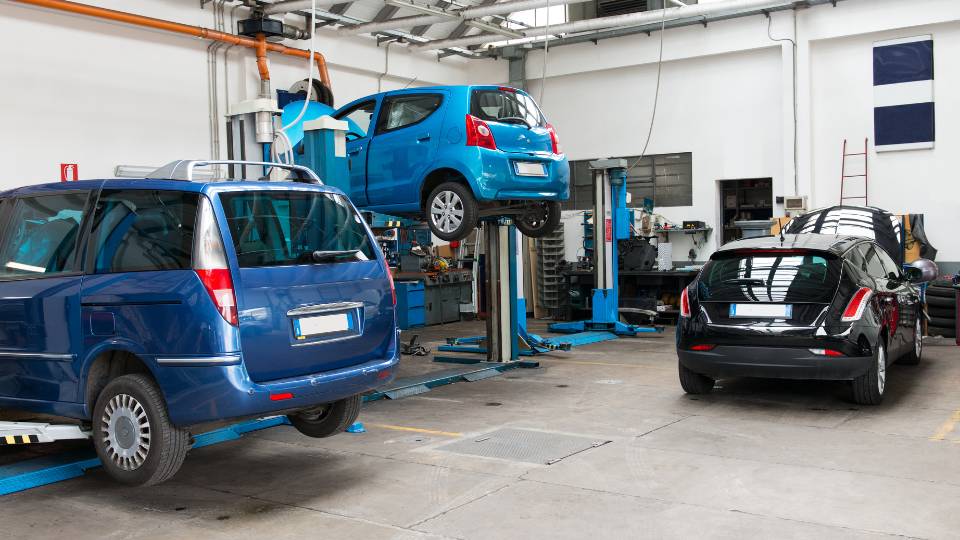
Any seasoned mechanic will be aware of the amount of waste material produced by working on vehicles.
It’s important to not fall into bad habits & miss opportunities to correctly manage garage waste in order to keep disposal costs low & maximise recycling or repurposing.
Garages in the UK have a multitude of options available when it comes to disposing of waste materials, some of which can even be sold to cover the cost of the waste collection.
In this guide, we’ll cover a wide range of waste types generated by garages such as used engine oil, worn tyres, car filters, metal shavings & more.
Make sure your site is up to date on the latest garage waste storage & disposal regulations.
Table of Contents:
- What kind of waste do car garages produce?
- How do garages dispose of used oil?
- Where can I dispose of car oil in the UK?
- Do you have to pay to scrap a vehicle in the UK?
- How garages can dispose of scrap metal
- What parts should you remove from a car before scrapping?
- How garages can dispose of brake pads
- Getting rid of metal shavings
- How garages can dispose of car batteries
- How can garages in the UK recycle car filters?
- What happens to used tyres?
- What are the garage waste collection regulations?
What kind of waste do car garages produce?
Commercial garages heavily depend on the expertise of waste collection services to efficiently remove and dispose of automotive waste.
This involves the management of dead car batteries, deteriorated tyres, fuel, cleaning fluids, and engine oils.
It is crucial for garages to adhere strictly to environmental regulations, especially when it comes to handling hazardous waste like engine oil.
Explore ways to improve the efficiency of waste disposal and recycling in your garage in the upcoming discussion.
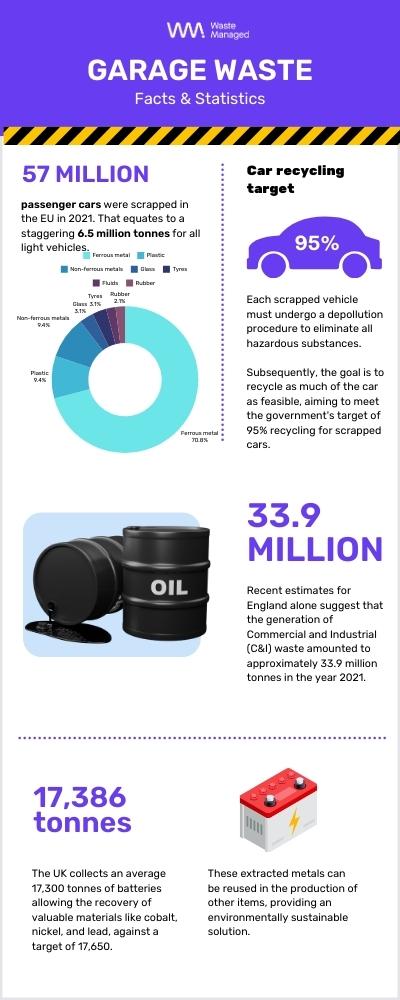
How do garages dispose of used oil?
Garages and service stations should manage used oil responsibly to avert environmental pollution. Standard disposal approaches for used oil encompass:
Recycling
Reprocess used oil to create lubricants or utilise it as an energy source.
Collection initiatives
Engage in local used oil collection programs or return schemes provided by waste management authorities or oil suppliers.
Authorised disposal facilities
Guarantee proper disposal through the utilisation of approved waste oil collection services or facilities.
You can read more about disposing of garage chemicals in our blog.
Where can I dispose of car oil in the UK?
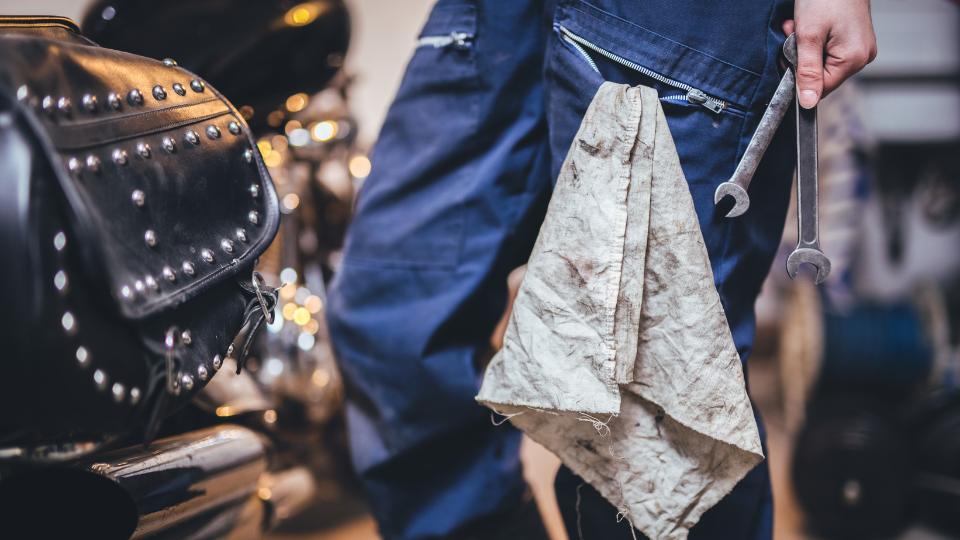
Correct disposal of automobile oil requires reaching out to the local council or an accredited waste collection service for planned collections, using approved recycling centres, returning oil to specific retailers or service stations, using designated oil banks, or employing self-service oil disposal kits that solidify the oil.
It is essential to securely store and transport used oil in uncontaminated containers, avoiding any mixture with other substances.
This practice facilitates the recycling process and mitigates the risk of environmental harm.
Do you have to pay to scrap a vehicle in the UK?
In the United Kingdom, there might be a charge for disposing of a car, commonly referred to as a “scrappage fee” or “scrapping charge.”
The amount varies based on factors like the vehicle’s make, model, and location.
However, it’s advisable to explore different options, as there are “scrapping schemes” that could potentially offer compensation for your vehicle.
Always ensure that you deal with scrap dealers who are authorised and licensed, adhering to legal regulations.
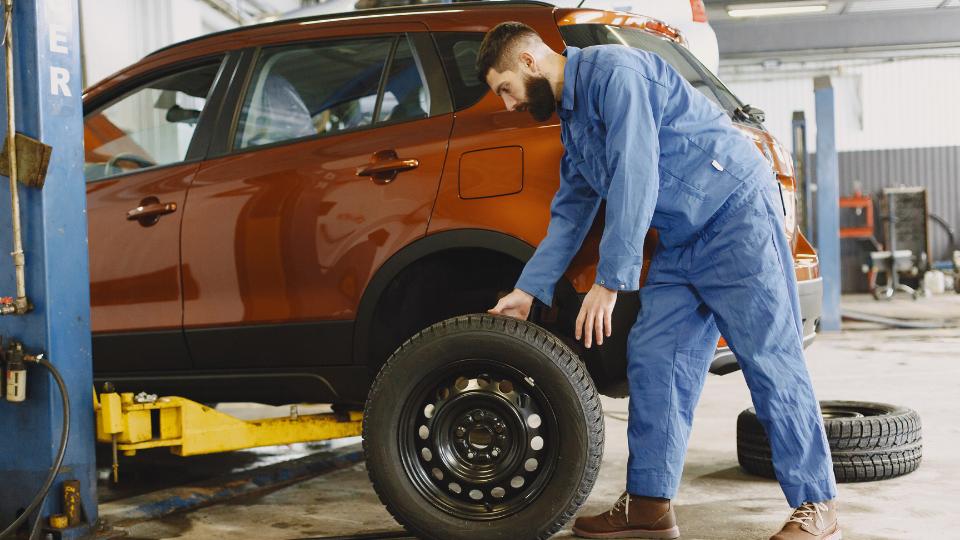
How garages can dispose of scrap metal
Scrap metal disposal in garages is a crucial aspect of waste management, particularly in automotive repair settings where various metals are generated as byproducts. Examples below:
- Common metals include steel, aluminium, copper, and alloys from discarded car parts, broken tools, and machining residues.
- Implementing a systematic approach to collect and segregate these metals enhances recycling efficiency and reduces environmental impact.
- Garages should establish partnerships with local scrap metal recycling facilities, not only ensuring legal compliance but also creating economic opportunities through compensation for the recycled materials.
- Proper disposal not only prevents environmental harm but also contributes to revenue generation and cost savings, making it an essential practice for both environmental and economic sustainability.
Safety considerations, staff education, and fostering a culture of responsible waste management further enhance the effectiveness of scrap metal disposal in garage operations.
What parts should you remove from a car before scrapping?
Before scrapping a car, certain parts should be removed. These typically include:
- License plates: Take off the license plates and return them to the appropriate authority.
- Hazardous materials: Safely remove and dispose of hazardous materials like batteries and fluids.
- Valuable components: Consider removing valuable parts, such as radios or specialised accessories, if you plan to sell or reuse them.
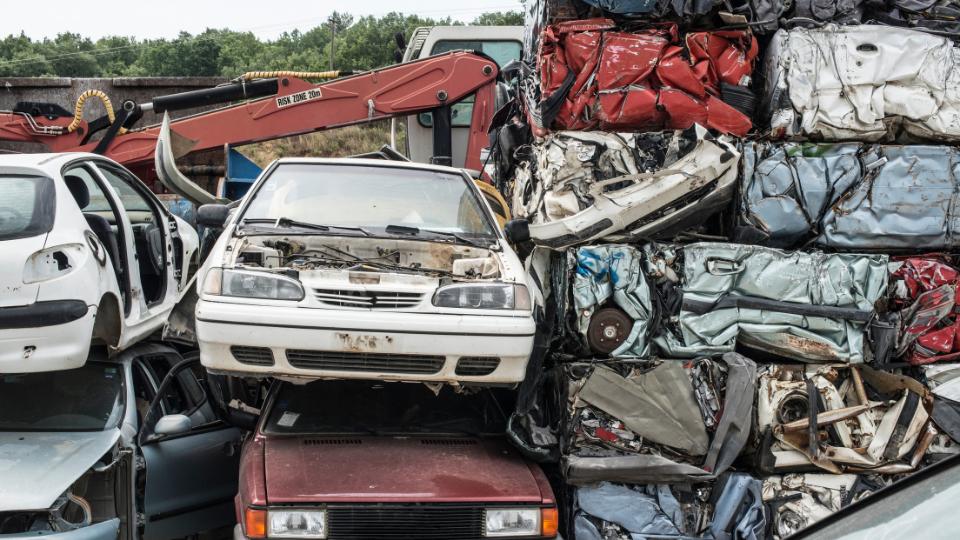
How garages can dispose of brake pads
UK garages can dispose of brake pads responsibly by segregating them from general waste.
Brake pads often contain materials that need proper handling.
Garages should partner with authorised recycling facilities or waste management services to ensure compliant and environmentally friendly disposal, adhering to regulations and minimising environmental impact.
Getting rid of metal shavings
Garages can dispose of metal shavings by collecting them in designated containers to prevent contamination.
Collaborating with local metal recycling facilities ensures proper disposal and often provides economic benefits.
Following environmental regulations and safety guidelines is crucial to guarantee responsible metal shavings disposal, minimising environmental impact.
How garages can dispose of car batteries
In the UK, garages must comply with regulations for car battery disposal, given their hazardous components.
Establishing dedicated collection areas, sending used batteries to authorised recycling facilities, and participating in manufacturer take-back programs ensure legal compliance and environmentally responsible practices.
Proper training and awareness programs are essential to prevent penalties and promote responsible waste management.
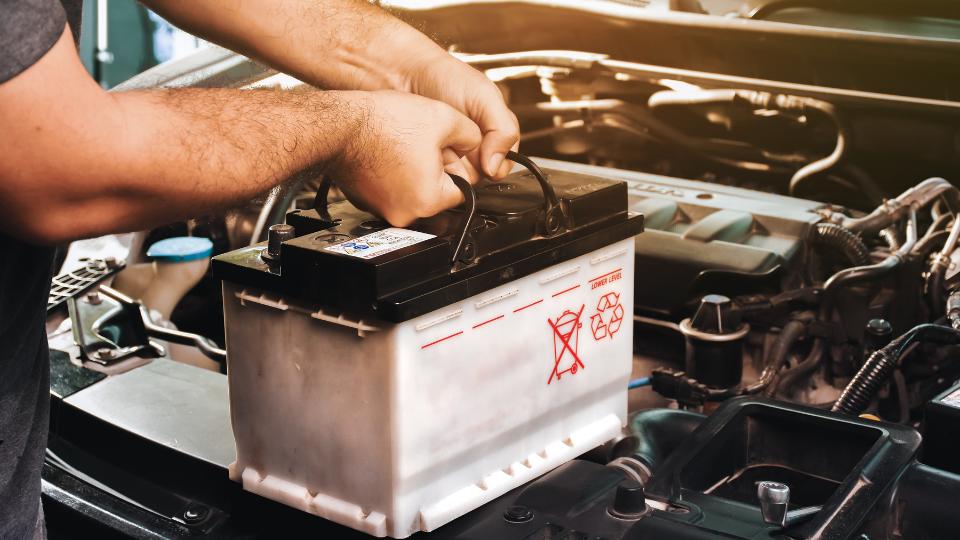
How can garages in the UK recycle car filters?
Filter recycling involves responsibly disposing of used filters, such as oil, air, or fuel filters, commonly found in automotive maintenance.
In the UK, garages can ensure environmental compliance by partnering with authorised recycling facilities.
Proper disposal helps prevent pollution and supports sustainability by recycling valuable materials contained in the filters.
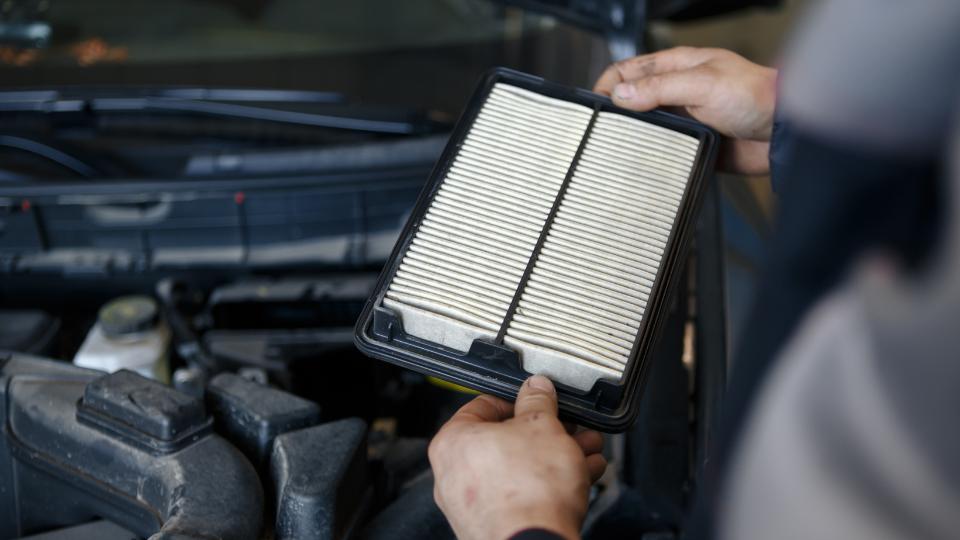
What happens to used tyres?
Used tyres can be recycled or repurposed in various ways:
- Tyre recycling facilities: Many recycling centres specialise in processing used tyres, transforming them into various rubber products.
- Repurposing: Tyres can be repurposed as mulch, playground surfaces, or even used for construction purposes like creating artificial reefs. Consider donating them.
- Energy recovery: Some facilities use tyres as a fuel source in energy recovery processes.
Did you know there’s lots of ways to recycled old tyres? Read our blog!
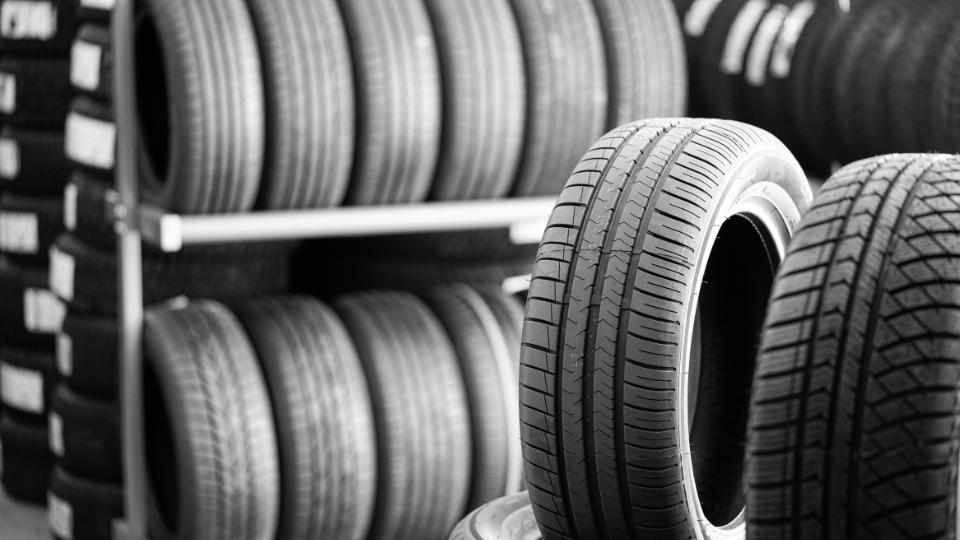
What are the garage waste collection regulations?
Garage waste disposal in the UK is regulated by several laws and regulations, including:
- The Environmental Protection Act 1990: This legislation establishes the duty of care for businesses to ensure proper waste management, including garages.
- Hazardous Waste Regulations: These regulations outline specific requirements for handling, storing, and disposing of hazardous waste produced by garages.
- Duty of Care Regulations: Garage owners have a legal obligation to ensure their waste is transferred to an authorised person and properly disposed of.

